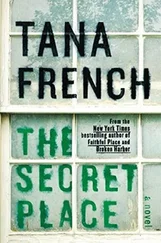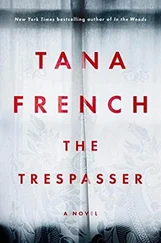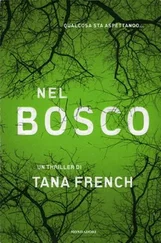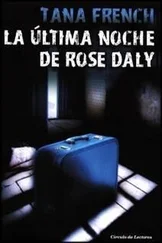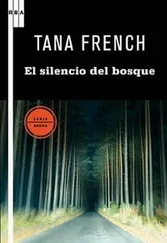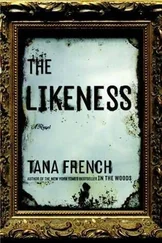“Dunno about most people. My sister’s got three kids and just the one monitor. It’s in the baby’s room, for when he’s asleep. When the girls were small she just had the audio, like those”-the walkie-talkies-“but the little fella was premature, so she got the video, keep an eye on him.”
“So the Spains were on the overprotective side. A monitor in every room.” Where I should have spotted them. It was one thing for Richie to get distracted by the big stuff and miss the details, but I was no virgin.
Richie shook his head. “Why, but? They were big enough to come get their ma if they needed her. And it’s not like this is a massive huge mansion: if they hurt themselves, you’d hear them yelling.”
I said, “Would you know the other halves of those things if you saw them?”
“Probably.”
“Good. Then let’s go find them.”
On Emma’s pink chest of drawers was a round white thing like a clock radio, which according to Richie was an audio monitor: “She’s a little old for it, but the parents could’ve been heavy sleepers, wanted to be sure they’d hear her if she called…” The other audio monitor was on Jack’s chest of drawers. No sign of the video cameras; not until we got back out onto the landing again. I said, “We’ll want the Bureau to check the attic, in case whoever was looking for-” and then I swung the torch beam up to the ceiling and stopped talking.
The hatch for the attic was there, all right. It was open onto blackness-the light caught the cover, propped up against something, and a flash of exposed roof beam high above. Someone had nailed wire mesh over the opening, from below, without worrying too much about aesthetics: ragged edges of wire, big nail heads sticking out at violent angles. In the opposite corner of the landing, high on the wall, was something silver and badly mounted that I didn’t need Richie to tell me was a video monitor. The camera was pointing straight at the hatch.
I said, “What the holy hell?”
“Rats? The holes-”
“You don’t set up bloody surveillance on rats. You keep the hatch down and call the exterminators.”
“Then what?”
“I don’t know. A trap, maybe, in case whoever bashed in the walls came back looking for Round Two. The Bureau are going to want to be careful up there.” I held the torch high and moved it around, trying to get a glimpse of what was in the attic. Cardboard boxes, a dusty black suitcase. “Let’s see if the rest of the cameras give us any hints.”
The second camera was in the sitting room, on a little chrome-and-glass table beside the sofa. It was aimed at the hole over the fireplace, and a little red light said it was switched on. The third one had rolled into a corner of the kitchen, where it was surrounded by beanbag pellets and pointing at the floor, but it was still plugged in: it had been up and running. There was a viewer half under the cooker-I had clocked it the first time round, taken it for a phone-and another under the kitchen table. No sign of the last one, or of the other two cameras.
I said, “We’ll give the Bureau a heads-up, have them keep an eye out. Anything you want another look at, before we bring them in?”
Richie looked unsure. I said, “It’s not a trick question, old son.”
“Oh. Right. Then no: I’m grand.”
“So am I. Let’s go.”
Another gust of wind grabbed the house, and this time both of us jumped. I would have done a lot of things sooner than let young Richie see this, but the place was starting to get to me. It wasn’t the kids, or the blood-like I said, I can handle both of those, no problem. Something about the holes in the wall, maybe, or the unblinking cameras; or about all that glass, all those skeleton houses staring in at us, like famine animals circled around the warmth of a fire. I reminded myself that I had dealt with worse scenes and never broken a sweat, but that shimmer moving through my skull bones said: This is different.
Unromantic little secret: half of being a Murder D is managerial skills. Trainees picture the lone wolf heading off into the wild after shadowy hunches, but in practice, guys who don’t play well with others wind up in Undercover. Even a small investigation-and this wasn’t going to be small-involves floaters, media liaisons, the Tech Bureau and the pathologist and the world and his auntie, and you need to make sure that at any given second all of them are keeping you up to speed, no one’s getting in anyone’s way and everyone is working to your big plan, because the buck stops with you. That slow-motion silence inside the amber was over: the second we stepped out of the house, before we even stopped walking quietly, it was time to start people-wrangling.
Cooper, the pathologist, was outside the gate, tapping his fingers on his case and not looking happy. Not that he would have anyway: at his best Cooper is a negative little bastard, and he’s not at his best around me. I’ve never done anything to him, but for some reason all his own he doesn’t like me, and when an arrogant bollix like Cooper doesn’t like you, he does it right. One typo on a request form and he sends it back and makes me start over, and forget putting a rush on anything: my stuff waits its turn, urgent or not. “Detective Kennedy,” he said, flaring his nostrils like I smelled. “May I ask whether I resemble a waiter?”
“Not at all. Dr. Cooper, this is Detective Curran, my partner.”
He ignored Richie. “I am relieved to hear it. In that case, why am I waiting?”
He must have spent the delay coming up with that one. “I apologize,” I said. “There must have been some misunderstanding. Obviously I’d never waste your time. We’ll leave you to it.”
Cooper gave me a withering look that said he wasn’t falling for it. “We can only hope,” he said, “that you have managed not to contaminate the scene too extensively,” and he brushed past me, tugging his gloves more firmly into place, into the house.
No sign of my floaters yet. One of the uniforms was still hovering around the car and the sister. The other one was at the top of the road, talking to a handful of guys between two white vans: Tech Bureau, morgue. I said to Richie, “What do we do now?”
As soon as we got outside he had started jiggling again: whipping his head back and forth to check out the road, the sky, the other houses, drumming a little two-fingered tattoo on his thighs. The question stopped him. “Send the Bureau in?”
“Sure, but what are you planning on doing while they work? If we hang around asking ‘Are we there yet?’ we’ll just be wasting their time and ours.”
Richie nodded. “If it was up to me, I’d talk to the sister.”
“You don’t want to go see if Jenny Spain can tell us anything?”
“I figured it’s gonna be a while before she can talk to us. Even if…”
“Even if she makes it. You’re probably right, but we can’t take that for granted. We need to keep on top of it.”
I was already dialing my phone. The reception felt like we were in Outer Mongolia-we had to head down to the bottom of the road, clear of the houses, so I could get a signal-and it took a bunch of complicated back-and-forth calls before I got hold of the doctor who had admitted Jennifer Spain and got him convinced I wasn’t a reporter. He sounded young and viciously tired. “She’s still alive, anyway, but I can’t promise anything. She’s in surgery now. If she makes it through that, we’ll have a better idea.”
I hit speakerphone so Richie could get this. “Can you give me a description of her injuries?”
“I only examined her briefly. I can’t be sure-”
The sea wind whipped his voice away; Richie and I had to bend close over the phone. I said, “I’m just looking for a preliminary overview. Our own doctor will be examining her later, one way or the other. For now, all I need is a general idea of whether she was shot, strangled, drowned, you tell me.”
Читать дальше

